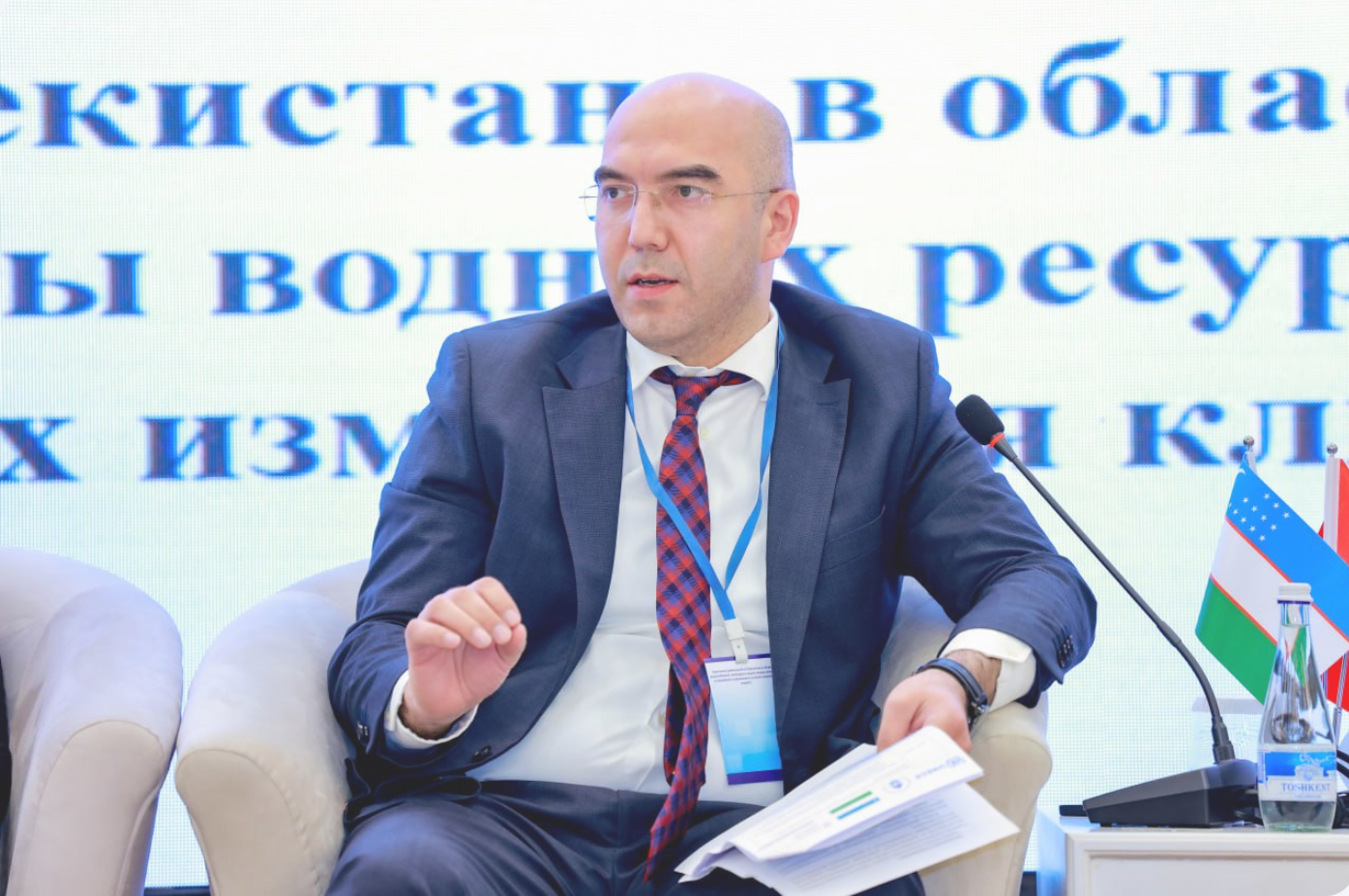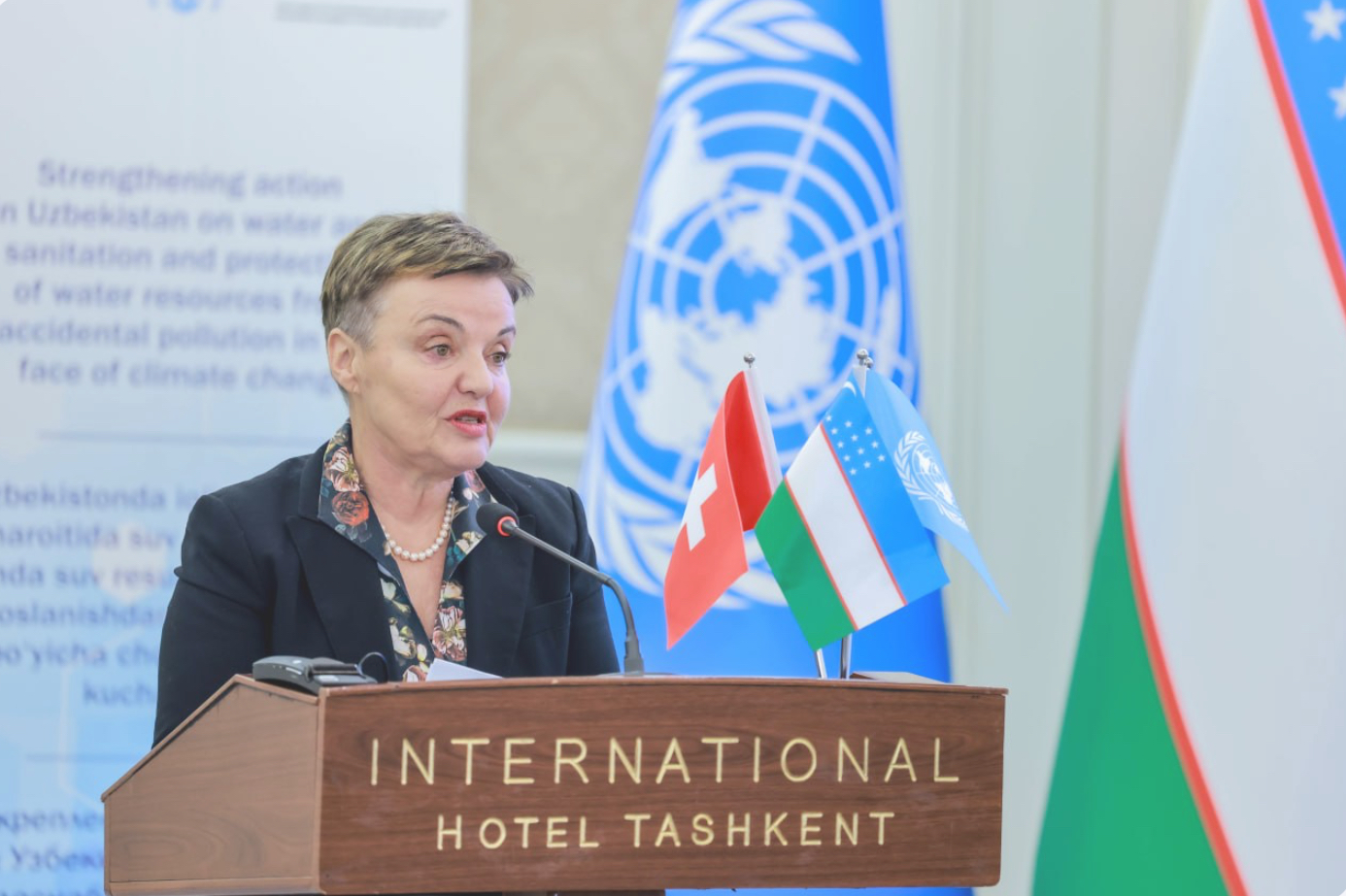On the eve of World Water Day, Uzbekistan marked a stride in its environmental stewardship with the launch of a pioneering project focused on water supply, sanitation, and safeguarding water resources in the face of climate change, the Ministry of Ecology, Environmental Protection, and Climate Change reported. Hosted in Tashkent, the project's initiation was commemorated with a seminar dedicated to its objectives and implications.

The project, titled "Strengthening activities in Uzbekistan in the field of water supply, sanitation, and protection of water resources from accidental pollution in the context of climate change," is being spearheaded by the United Nations Economic Commission for Europe (UNECE). It is intricately tied to Uzbekistan's recent accession to the Protocol on Water and Health, signifying the nation's commitment to sustainable water management practices.
Organized collaboratively by UNECE, the Ministry of Ecology, Environmental Protection, and Climate Change, and the Ministry of Mining and Geology, the seminar convened key stakeholders including government officials, representatives from international organizations, and the media. Notable attendees included Abdumajid Kholmurodov, Head of the Department of Water, Land, and Subsoil Protection, the Director of the Research Institute of Environment and Nature Conservation Technologies at the Ministry of Ecology, Baxtiyor Pulatov, and Dmitry Maryasin, Deputy Executive Secretary of the UNECE.

Funded by the Swiss Agency for Development and Cooperation and slated for implementation from 2023 to 2026, the project aims to bolster national governance and capacity in water supply and sanitation sectors. It also prioritizes the mitigation of water pollution, particularly stemming from mining activities, and enhancing resilience to the adverse impacts of climate change. Golib Shukurov, Chief Specialist of the Ministry of Ecology, emphasized the multifaceted objectives of the project, which include fostering cross-border cooperation and facilitating regional exchanges.
Uzbekistan's accession to the Protocol on Water and Health was underscored, alongside discussions on water supply, sanitation, and healthcare. Additionally, deliberations on the nation's accession to the Convention on the Transboundary Effects of Industrial Accidents were held, reflecting Uzbekistan's proactive engagement in addressing environmental challenges.

Rachel Boesch, Deputy Head of Mission and Head of the Department for Cooperation at the Swiss Embassy in Uzbekistan, lauded Uzbekistan's commitment to the Protocol on Water and Health, recognizing it as a pivotal step towards delineating clear objectives for water resource management.
"We are glad that Uzbekistan has joined the Protocol on Water and Health Issues. This is important because a clear action plan will serve to set clear goals and increase the importance of Uzbekistan's work on water resources management", Rachel Boesch noted.
The seminar also provided a platform to delve into the UN Convention on the Transboundary Effects of Industrial Accidents, shedding light on Uzbekistan's participation in the Convention's Assistance and Cooperation Program. Moreover, insights were gleaned from Hungary's experiences as a participant in the Protocol on Water and Health, offering valuable perspectives for Uzbekistan's ongoing initiatives.
Central to the discussions were the prevailing standards for wastewater treatment in Uzbekistan, with a focus on charting a course for future endeavors in this realm.
Follow Daryo's official Instagram and Twitter pages to keep current on world news.
Comments (0)